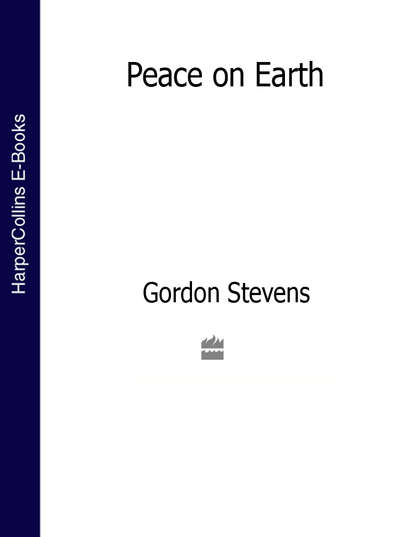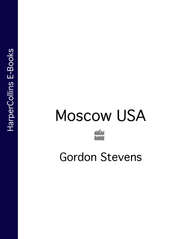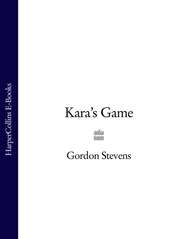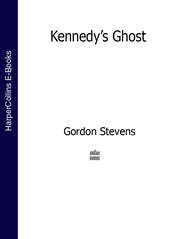По всем вопросам обращайтесь на: info@litportal.ru
(©) 2003-2024.
✖
Peace on Earth
Автор
Год написания книги
2018
Настройки чтения
Размер шрифта
Высота строк
Поля
If Haddad was to end it, Nabil had thought to himself in Damascus, then Haddad may as well start it. He flicked between the channels, catching the same report on CBS and NBC. Haddad had now started it.
He showered, took a light supper of cold meats and salad, and went to bed.
He woke at four, a combination of the time difference between Damascus, London and New York, and the air conditioning, which he found oppressive, slept fitfully for another two hours and rose at six. He left the hotel and spent the next ninety minutes walking the streets. The weather was brisk and cold. On the corner of Times Square he bought copies of the New York Times, the International Herald Tribune and the Wall Street Journal.
He was getting hungry. In a delicatessen six blocks from the hotel he took lox and bagels, sitting in the seat farthest from the window. The service was friendly, he wondered for the briefest of moments what the shabab, the boys, would have thought, how the owners would have reacted, if they had known that he, Abu Nabil, planner of death, executioner of violence, survivor of at least three Israeli attempts on his life, was breakfasting in a Jewish deli in New York, served by a smiling Jewish waiter whom he called David and whom, as he left, he would tip and who would tell him to have a good day. His battle, however, had never been personal. Besides, the lox was good and the second cup of coffee was free. And the place was warm and crowded. He thought, not for the first time that day, of the photograph he had again left in the emptiness of his flat in Damascus and turned to the newspapers.
The assassination in London featured on the front pages of both the Times and Tribune and the international page of the Journal. On the front page of the Herald Tribune there was also a photograph, taken two nights before, of the moment in Northern Ireland when a British soldier had saved the life of the son of a leading member of the IRA. The British government, the article said, had declined to comment on press speculation that the soldier concerned had been a member of the Special Air Service, the SAS.
The waiter refilled his cup. He drank it slowly then rose to leave, paying the bill and leaving a good tip. As he left, the man he had called David told him to have a good day.
At eight thirty that morning, Paris time, the head of arms sales for the French government, General René Audran, was shot dead at his home outside Paris. An hour later, in a communiqué to the Paris and Rome offices of Agence France Presse, responsibility was claimed jointly by Action Directe and the Red Brigades. Forensic tests conducted within twenty four hours established that the weapon used appeared to match that used in the murder of a magistrate in Turin the preceding August.
Two hours later a West German industrialist, Hans Martin Schneider, was murdered when he answered the door to an attractive young woman claiming to be a friend of his daughter.
In the next forty-eight hours there were bombings in West Germany and Belgium; in West Germany the targets were the American companies of Litton, MAN and Honeywell in that order; in Belgium the targets were the American companies of Litton, MAN and Honeywell, also in that order. In all the attacks, it was suggested, the explosives came from the same source: 816 kilos of plastic explosives stolen at Ecoussines, in Belgium, six months before.
The meeting with the industrialist Ahmad Hussein was at ten; it was almost seven weeks since they had met on the quai at St Germain-en-Laye, on the outskirts of Paris. Nabil walked to Macy’s, enjoying the Christmas decorations, and bought two gifts, one of them a chess set, asking for both to be wrapped, then took a cab to the block which housed the offices of the businessman. His host was waiting. He poured them coffee from a percolator in the corner and asked whether Nabil had breakfasted. Nabil confirmed that he had without saying where.
The room was comfortable, well furnished, a Persian rug on the floor and three paintings of Jerusalem by Suleiman Mansour on the walls.
‘A sad affair in London,’ Hussein suggested, handing Nabil a coffee.
‘A sad affair indeed.’
For the next ten minutes they discussed the implications of the London assassination; when they had finished Hussein unlocked the top right drawer of his desk and took a file from it.
‘In January,’ the industrialist began, establishing the background, ‘Ronald Reagan will officially begin his second term as president of the United States. He will be seventy-four years old when he starts, seventy-eight at the end. For reasons of his age, and because he cannot, under the Constitution, hold office for a third term, many people believe the next four years will be what Americans like to call a lame-duck presidency.’ He paused. ‘In Paris, we agreed this would not be the case. In Paris, we agreed that, partly because of his own background, partly because it is what every president wants, Reagan will seek to do something that will allow him to go down in history. In Paris,’ he concluded, ‘we also agreed that the obvious area is foreign policy. Within this, we agreed, Central America was too controversial, too many comparisons with Vietnam. The obvious area, therefore, other than any agreement with the new Russian leadership, was the Middle East.’
He moved the file to the centre of the desk.
‘You wanted two names. Firstly, the name of the man who will be the president’s foreign policy advisor in the foreseeable future, the man who would run his Middle East policy for him, who would do the negotiations. Secondly, you wanted the name of the person most likely to have influence with that man.’
He opened the file. ‘As regards the first,’ he said, ‘there are three possibilities. The first, and luckily for us not the favourite, is pro-Israeli, strong connections with the Jewish Lobby here.’ Nabil listened intently. ‘The second,’ continued Hussein, ‘would be a strong candidate, except that his wife is seriously ill. It may be that she recovers by the dates we are discussing, it may also be that she is no longer with us.’ His voice had dropped slightly. ‘In which case,’ he said, ‘the man in question might have both the time and motivation to do something.’
‘But?’
‘But he would be preoccupied with his wife’s illness during the lead-up to that period, during the time he would have to be convinced that he wanted the job and others persuaded that he was the man for it.’
‘And the third candidate?’
Hussein pulled a photograph from the file and handed it to Nabil. ‘Henry Armstrong is fifty-six years old. He was associated with Reagan, albeit at a distance, when the president was governor of California, he is also reported to have had links with George Bush when the vice president was head of the CIA.’
‘Does that go against us?’
Hussein shook his head. ‘Henry Armstrong is a wealthy man, a prominent businessman, a success in his own right. Fortunately for us, he is also a very practical man. His companies have close connections with companies in the Middle East, Arab companies.’
‘How will you manage it?’ asked Nabil.
Hussein looked up from his coffee. ‘I have already started,’ he smiled, knowing Nabil wanted to know more. ‘A little financial backing where necessary,’ he began to explain, ‘sometimes a long way from the target itself, even from the people who will have influence when it matters, but to the people who will influence those people.’ He laughed. ‘Sometimes you don’t even say he’s a good man to have around, sometimes it’s better to say he’s a real bastard and the last man they should let anywhere near the Oval office.’ His eyes gleamed at the thought.
‘So Henry Armstrong will be the next major foreign affairs negotiator for the United States of America?’
‘Yes.’
Nabil leaned forward and turned the photograph of Henry Armstrong face down on the desk. Not from disdain or disrespect, but from habit. ‘And who will be the catalyst?’ he asked. ‘Who will be the man who will have his ear?’
Hussein took a second sheet of paper from the file. Attached to it was another photograph and a cutting from a newspaper.
‘The Jacksonian Institute is a political think tank in Washington. It is highly respected, both nationally and internationally, with considerable justification. Henry Armstrong is a regular contributor to its foreign affairs seminars, he is also a major benefactor of the institute.’ He smiled again. ‘Most things in America are, of course, tax deductible.’
‘That aside the institute plays an important role in Armstrong’s life. It is one of the reasons he must be considered in line for a top post in government.’ Nabil heard the words and knew that Armstrong was the man he wanted, wondering whether Hussein’s second choice would be as good as his first. ‘Each year,’ continued the industrialist, ‘the institute hosts a number of international forums to which guest speakers from various parts of the world are invited. Several years ago Armstrong himself chaired a seminar on strategic politics at which one of the guest speakers was this man.’ He unclipped the photograph from the sheet of paper in front of him and passed it to Nabil. The man in it was in his late thirties, good-looking, immaculately groomed. ‘The speaker was a British Member of Parliament, one of the up and coming breed who seem set to control things in the future. Armstrong was so impressed that he invited him back. They are now close friends.’
‘How important was he?’
‘He wasn’t important then, he is important now, he will be extremely important in the future.’ He passed Nabil the sheet of paper with the newspaper cutting fastened to it.
Nabil took it. ‘What do you mean?’ he asked.
Hussein looked at him. ‘John Kenshaw-Taylor entered the British Parliament in a bye-election in 1978 after a successful career in the City. Like others of his kind, it was important to him that he was seen to make his first million by the time he was thirty. Politics, in any case, was always a strong possibility for him; his family has had its hands on British foreign affairs for most of the past half-century, probably well before that. Since 1978 his rise has been spectacular. Two years ago he was made Minister of Energy.’
Nabil knew there was more.
‘Eight weeks ago he was promoted to Number Two at the British Foreign Office. The day he moved, the London Times said it was merely one more step to his becoming Prime Minister.’
Nabil looked at the dates on the newspaper cutting Ahmad Hussein had given him. The day, he thought, that he had seen the article which had planted the first seed of the plan in his mind, the day he had played tawli with the old man in the café. The day, he did not know, that Yakov Zubko and his family had left Moscow and begun their journey to the West.
‘How can we get at him?’ he asked.
‘He’s ambitious,’ Hussein replied, equally succinctly.
The meeting finished at twelve. At twelve thirty Hussein drove them to a Lebanese restaurant where they ate a quiet and discreet lunch. When they parted, Nabil gave him the gifts he had bought for his children; that night Hussein gave them to his son and daughter; when they asked who they were from, he told them they were from an uncle who loved them very much but whom they had never met. His wife knew not to ask.
At four thirty that afternoon Nabil made a single international telephone call, checked out of the Plaza Hotel, took a cab to John F. Kennedy, and caught the six forty-five TWA flight to Rome.
CHAPTER THREE (#ulink_85e5c79b-ee61-564a-9c0e-18e3de773ab8)
The sherry was manzanilla. He had a standing order for it from Green’s in the City and kept it chilled in a walnut cabinet in the corner of the office.
‘If this is how a bad day ends, Minister, how do we end a good one?’ The civil servant’s question was only half a joke. For the first time since he had taken office the Foreign Minister had sent back a briefing with a request that it should contain more information.
John Kenshaw-Taylor sat down on the edge of his desk. ‘Edward,’ the Under-Secretary was his senior by at least fifteen years, ‘you know I will always take your advice, as long as you make me think it was my idea in the first place.’
The man called Edward smiled. ‘Precisely, Minister.’
The exchange had cleared the air, they settled back into the chesterfields and relaxed.
It was the way Kenshaw-Taylor had always anticipated ending each day at the Foreign Office, a quality he considered the other newer members of the government lacked, a style, in addition to his ability to digest a brief and reproduce it with maximum impact in the House or in cabinet committee, that had already marked him out in the minds of the Whitehall mandarins as the man to watch, the one who would get to the top.









